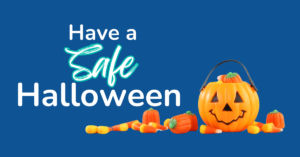For every child that is diagnosed with an allergy, there is a team of adults making sure that they are safe and healthy. While everyone should know about the allergy, who should learn how to use an epinephrine auto-injector through anaphylaxis training?
As the main caregivers, it is essential that parents know how to recognize and respond to anaphylaxis when it happens. They are the link between a doctor and family, childcare staff, school staff, and any adults that are in a child’s life. If parents do not have a good understanding of what anaphylaxis can look like in their child, it is hard to communicate it to others. Training for parents should come from their child’s doctor, who has the best understanding of their child’s health, but can also be supplemented with other epi training as well.
Once of age, children spend the majority of the week outside of the home and with childcare centers or schools. To fully ensure the safety of the children at their center or school, at least 10% of school staff – including a school nurse – should go through anaphylaxis training. This training benefits not only the children with diagnosed allergies but also any that may experience anaphylaxis for the first time in their care.
Babysitters & Nannies
While parents are the primary caregivers, babysitters and nannies should also be trained to recognize and respond to anaphylaxis. As people that are alone with children frequently, babysitters and nannies need to be prepared when accidents happen. Snacks and meals may have accidental allergens and bugs with venom are everywhere, especially in the summer months. While only part-time caregivers, babysitters and nannies need to be fully prepared for anaphylaxis.
Coaches
Did you know that exercise can make it easier to go into anaphylaxis? If an allergen is introduced, exercise can reduce the threshold for a child’s allergy response – increasing the chance of a severe reaction. Coaches should be trained to recognize what the signs and symptoms are so they can give epinephrine if needed. Many sports are outside as well, which can increase the odds that a child with a venom allergy may be exposed.
Family
Besides parents, siblings, grandparents, aunts, uncles, cousins, or any other relative should have epi training. Family can serve as any other kind of caregiver on this list so they should also be prepared. If someone in your family has an allergy, it would serve you and the child well to get educated on what anaphylaxis can look like and how to use epi auto-injectors.




